A legacy of racial inequality before the law in Wisconsin
Racial disparities in the criminal justice system have been shaped by unequal application of the law, prompting efforts to educate about their impacts in Wisconsin and provide support in communities.
By Murv Seymour | Here & Now
September 19, 2023
VIDEO TRANSCRIPT
Editor's note: If you have watched this or any other Wisconsin in Black & White report, please share your feed back in a survey at pbswisconsin.org/wibw-survey. Thank you.
Ion Meyn:
There are more Black Americans in prison than white Americans right now. That is, and should be, completely shocking. It is apartheid.
Noble Wray:
It takes a society to look at this in a different way.
Secretary Kevin Carr:
That's a statistic that I don't think any of us should be proud of.
Justice Jill Karofsky:
Oh, my God, this is such a big problem.
Murv Seymour:
We ask the question, "How did we get here?"
Reggie Jackson:
Systemic racism means that within that society, you have factors about people's lives that you can predict the outcomes of their lives on the day that they're born, based on the racial groups that they belong to.
Murv Seymour:
Reggie Jackson educates people about diversity.
Reggie Jackson:
Racism has been a part of Wisconsin history since it began as a state. I often times joke with people that I call Wisconsin "Wississippi" because we generally think of racism in the South.
Dr. Christy Clark-Pujara:
Lincoln opposed slavery's expansion, not its existence.
Murv Seymour:
Dr. Christy Clark-Pujara is an author, and she teaches African American history at the University of Wisconsin- Madison.
Dr. Christy Clark-Pujara:
Systemic racism, much of it, is an extension of the creation of race-based slavery. And race-based slavery was created through law, and that was done in the colonial period.
Rev. Greg Lewis:
Jesus give you some tough love.
Racism is huge here in Wisconsin, and it's worse than it's ever been. Milwaukee is kind of special. This is the Selma of the North. When I go to other places, people don't even know that Milwaukee have Black folks living here. Say, "There's Black folks in Milwaukee?" Yeah! And they've been oppressed like crazy.
Ion Meyn:
Not surprisingly, the highest demographic representation of African Americans...
Murv Seymour:
University of Wisconsin law professor Ion Meyn teaches race and the law, civil rights, and wrongful convictions.
Ion Meyn:
White society is addicted to racism.
Murv Seymour:
He has a lot to say about the racial climate in Wisconsin.
Ion Meyn:
I don't know what makes Milwaukee the most segregated city in the United States. It is. And I don't know what makes the practices in Milwaukee generate an overrepresentation of Black people in prison so that it's the highest in the nation. If you're a Black person, Black resident in Wisconsin, you have a 12 times higher chance of being incarcerated than a white Wisconsinite.
Murv Seymour:
History tells us the over-policing of Blacks in Wisconsin and across the country dates back to the end of slavery.
Reggie Jackson:
When the 13th Amendment to the Constitution was ratified in December of 1865, most people never read what it says.
Dr. Christy Clark-Pujara:
It abolishes slavery, and then there's a semi-colon, "Except for punishment for those who have been found guilty of a felony."
Reggie Jackson:
It creates the ability for you to be back in slavery in a different form. Something like loitering, which had never been illegal before, becomes illegal.
Dr. Christy Clark-Pujara:
Whistling in public. Like, I mean, like that level of nonsense. Walking along a railroad track, not being able to produce employment papers on demand. You steal a pig, you go to prison for life.
Reggie Jackson:
Instead of sending you to prison, someone who owns a plantation or a mine or some business who wants some free labor, they'll be able to come in and grab you and put you into that system so that you're not gonna go to prison. Now you're gonna go back and work for free.
Ion Meyn:
Society says, "Oh, my gosh, Black people have a propensity to commit crimes," versus what was going on, which was they were arresting Black people for committing no crime, and then sending them to slavery.
Murv Seymour:
The small town of Appleton was once the center of one of the most racist tactics used across the country to keep Blacks out of white communities.
Ion Meyn:
Appleton doesn't really have any Black people, and if you asked people in Appleton, it's just because Black people didn't wanna move there. Black people lived in Appleton before the 1880s, and they attempted to join a growing community during the '40s and '50s, but it was a sundown town through 1970 and enforced by the police.
Murv Seymour:
Sundown towns were places that didn't allow Blacks and other people of color after dark.
Reggie Jackson:
They were all over Wisconsin.
Murv Seymour:
Nearly 250 in all, according to a database created by Washington, D.C. sociologist James Loewen.
Dr. Christy Clark-Pujara:
So, Black people can be there as workers, they can come to fish during the day, but you'd better be out by night.
Reggie Jackson:
Some places had a horn that would ring in the evening when it was time for Black people to get out. Some places literally had signs on the side of the roadway that said, you know, "After the sun sets, Black people, you're not welcome here."
Murv Seymour:
About that time, the prison population in Wisconsin and everywhere else begins to explode.
Reporter:
Six days of rioting in a Negro section of Los Angeles left...
Ion Meyn:
After the Watts riot, white people blamed Black people for the problem. The response was a call for federal funding to provide a more robust policing of these areas. We started to see this war on crime.
Sec. Kevin Carr:
I'm aware that the current criminal justice system has a disproportionately large number of persons of color involved in it. It makes me somewhat sensitive to, hopefully, being able to address the needs of that population in a way that is fair to everyone.
Murv Seymour:
Former Madison police chief Noble Wray sits on the governor's pardon board.
Noble Wray:
The politics back then was tough on crime, tough on drugs, say no to drugs. It was, you know, a zero-tolerance approach.
Reggie Jackson:
You're not going to hire all of these police officers for them to sit around and do nothing.
Ion Meyn:
It was billions of dollars.
Officer 1:
Open the ####ing door, or I'm gonna break the ####ing window.
Officer 2:
Open the door, man.
Ion Meyn:
It was changing the face of corrections and policing.
Officer 1:
So if you cooperate...
Ion Meyn:
All of that money focused on those communities of color.
Noble Wray:
You end up with a disproportionate population that are under the criminal justice system.
Dr. Christy Clark-Pujara:
If you live in the quote, unquote hood and poor areas, you are policed in a way that people in affluent areas are not, right? And so you are just more likely to find yourself in front of a judge.
Ion Meyn:
White individuals, their cases get dismissed at a rate 50% higher than the Black individuals. There's a higher rate of sentencing Black individuals for the same crime, at every part of the system. By the way, there's a higher rate of Black individuals for the same thing being sent to a higher level of security prison. And then there's a higher rate of white people in prison getting good time credits than Black people. If you look at every part of the system, it doesn't matter where you look. You're going to find these drivers of disparity.
Murv Seymour:
Today, former governor Tommy Thompson and others admit building more prisons was the wrong approach. Now retired, Thompson is a passionate advocate for more educational opportunities for those incarcerated.
Tommy Thompson:
The increased crime indicated that we needed more prisons at the time, and which I accommodated. But every time I did this, I always tried to balance on the other side. I was big on welfare reform. I was big on workforce development. I was big on expanding education.
Domineé Meek:
In February of 1992, I had been expelled...
Murv Seymour:
At age 15, Domineé Meek received a life sentence for taking the life of Warren Smith, Junior, an innocent bystander. Domineé believes he and other Black and brown teens receive harsher sentences compared with whites the same age, convicted of the same crime.
Domineé Meek:
When I was incarcerated, I only met one person that was white that was sentenced as a juvenile to life in prison. They took Black boys and said that "Y'all are Black men." And they punished us like men. They don't do that to white boys. Not in the numbers. They gave them help.
Ion Meyn:
In Wisconsin, the number of, kind of, criminal referrals is three times higher for Black kids than white kids.
Domineé Meek:
You got two or three generations of Black parents who have been incarcerated. The majority of the people locked up are Black and brown. So when you got the majority of us locked up, you can't be a parent from prison. So when that child looks for that, only place he goes to get it is in the streets. So we need father figures to step up, somebody to be, that I can call at 2 o'clock in the morning and say, "Murv, I'm locked up, can you come get me?" Or "Murv, I'm scared, can you come get me?" Or "Murv," and when I disappoint Murv, that still is gonna love me like Murv would love his own children.
Murv Seymour:
In 2020, Domineé walked out of Oakhill Correctional Institution after 28 years. He says he doesn't feel free.
Domineé Meek:
When I left prison in September, one hole was filled, but one wasn't. Warner can never come back and hug his mama, hug his baby girl. I live my happiness, and I live this life, but I never forget about Warren. The goal is to prevent another Domineé from killing another Warren.
Murv Seymour:
Domineé is a former student of Odyssey Beyond Bars, a college jumpstart program at Oakhill. Peter Moreno runs it on behalf of the University of Wisconsin, out of four institutions in the state.
Peter Moreno:
We've learned through experience that long prison sentences, while they may be appropriate for certain crimes, are not appropriate for a lot of crimes. And long prison sentences, combined with a lack of programming in the prisons, can be especially harmful because we're keeping people in an environment where they're unable to learn, unable to grow, unable to socialize, and then we're letting them go back to their communities, expecting them to do well.
Murv Seymour:
Moreno encourages a closer look at the conditions of neighborhoods and fixing problems leading to people entering the criminal justice system.
Peter Moreno:
We know how to deal with many of these issues.
Murv Seymour:
With the recidivism rate of just over 31%, Wray says there are four support systems proven to help close the sometimes-revolving door back to prison.
Noble Wray:
Do you have a place to live when you get out, and is that place solid, does it reinforce, does it support you? Two, do you have employment, which is big. Three, do you have the people around you that support you and that will help you in terms of doing the right things, making the right decisions? And the fourth one is treatment.
Justice Jill Karofsky:
Wisconsin should be less worried about getting a bad rap and more worried about improving the lives of the people in this state who live in our communities of color.
Murv Seymour:
In 2016, Supreme Court Justice Jill Karofsky took part in a course called "Justified Anger: Black History for a New Day." The program was run by the Madison organization Nehemiah, which focuses on strengthening the African-American community in Wisconsin. Justice Karofsky says the course on racial disparities in the criminal justice system gave her a new understanding of how, at times, the criminal justice system unfairly impacts people of color.
Justice Jill Karofsky:
This country was founded by white men who were well-intentioned and who created a system of laws and the Constitution that was built on the idea of freedom. But back in the late 1700s, we know that they didn't mean freedom for all people. Because of that, it has been the white majority who has been in control of so much of this country. Business, of government, of the financial world. It is gonna need to be leaders in those areas that are going to have to help make the change that so many of us wanna see.
Murv Seymour:
Justice Karofsky says inspiration from attending "Justified Anger" led her to bring the Nehemiah anti-racism trainings to other judges across the state in the form of intense, one-day sessions.
Do you think that we have too much emphasis on race these days?
Justice Jill Karofsky:
No. Most Supreme Court justices don't do interviews like this. The reason I am doing this interview and I agreed to do it is because I think and I believe, and I know, and I see that it is a problem in our state, and maybe if I stand up and sit here, as uncomfortable as it may be for me, that that may help be part of the change. One of the ways we can do that is to try to reach out to our colleagues of color, to mentor them, to learn from them because their experience is very, very rich and could be different than ours. And then, to help them succeed, should they wanna run for judge, or should they wanna ask for an appointment.
Murv Seymour:
Secretary Carr says he sees a shift from simply locking people up for public safety to providing more treatment, more education, more trauma-based care.
Sec. Kevin Carr:
We have started to rely more on alternatives to revocations, such as short-term sanctions and community-based programming, and for instance, like drug treatment referral for minor possession cases as opposed to sending that person back to prison.
Justice Jill Karofsky:
Each of us needs to figure out what is it that we can do. If it's only one thing, then it's only one thing.
Alex Lindenmeyer:
We really wanted to have a brick-and-mortar space, like, in the heart of the city where people could come together.
Murv Seymour:
Short Stack Eatery in Madison serves up a lot more than food.
Alex Lindenmeyer:
Gosh, as white folks, we have so much to learn.
Murv Seymour:
Its owner says their spot serves as an example of how to help equalize what they consider the uneven intersections of race and inequality.
Alex Lindenmeyer:
We're definitely unapologetically trying to become less and less racist every day.
That's our goal. We figure if we can unravel some of our racist tendencies and indoctrinations, everybody can.
Murv Seymour:
At her restaurant, Lindenmeyer's job applications look different. There is no box to check if you have a felony conviction.
The fact that we don't have a box on our application, and we don't do background checks, and we don't do drug testing and all those things.
Murv Seymour:
For years, they have also routinely sent its managers to the Nehemiah's nine-week "Justified Anger" course.
Alex Lindenmeyer:
We have huge, huge systems to figure out how to disassemble and reassemble, and so it's gonna be lifelong work.
Rev. Greg Lewis:
They said 92% of our community didn't even know that there was a mayoral election.
Alex Lindenmeyer:
Black folks can't do it alone. They can't do it without us. We're the one causing the violence.
Rev. Greg Lewis:
Stop running people over here out in these streets. Stop shooting folks, man. Yeah, they need to fix it. We ain't gonna fix that, man. We're the hated ones.
Editor’s note: If you have watched this or any other Wisconsin in Black & White report, please share your feed back in a survey at pbswisconsin.org/wibw-survey. Thank you.
 Passport
Passport




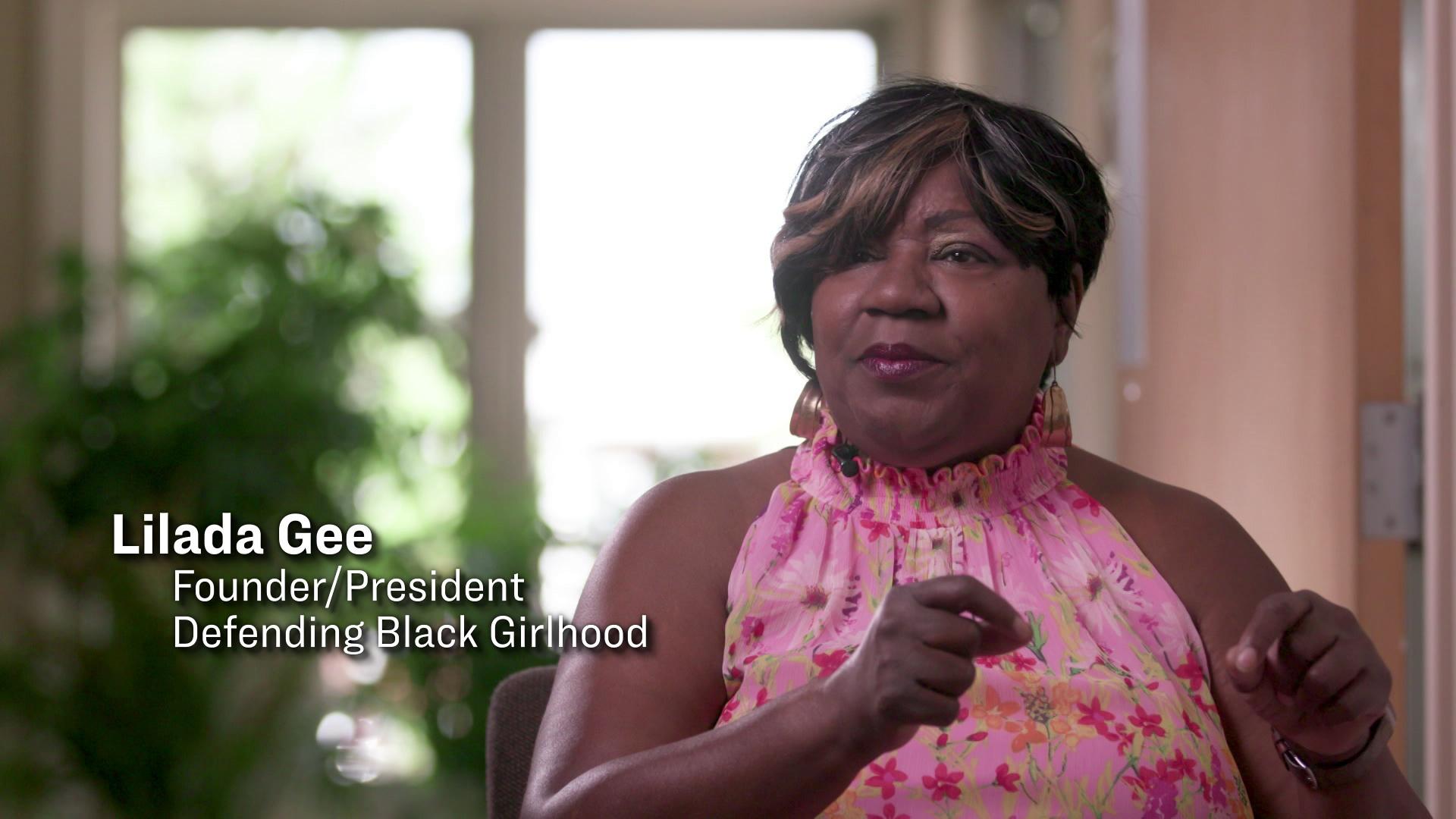
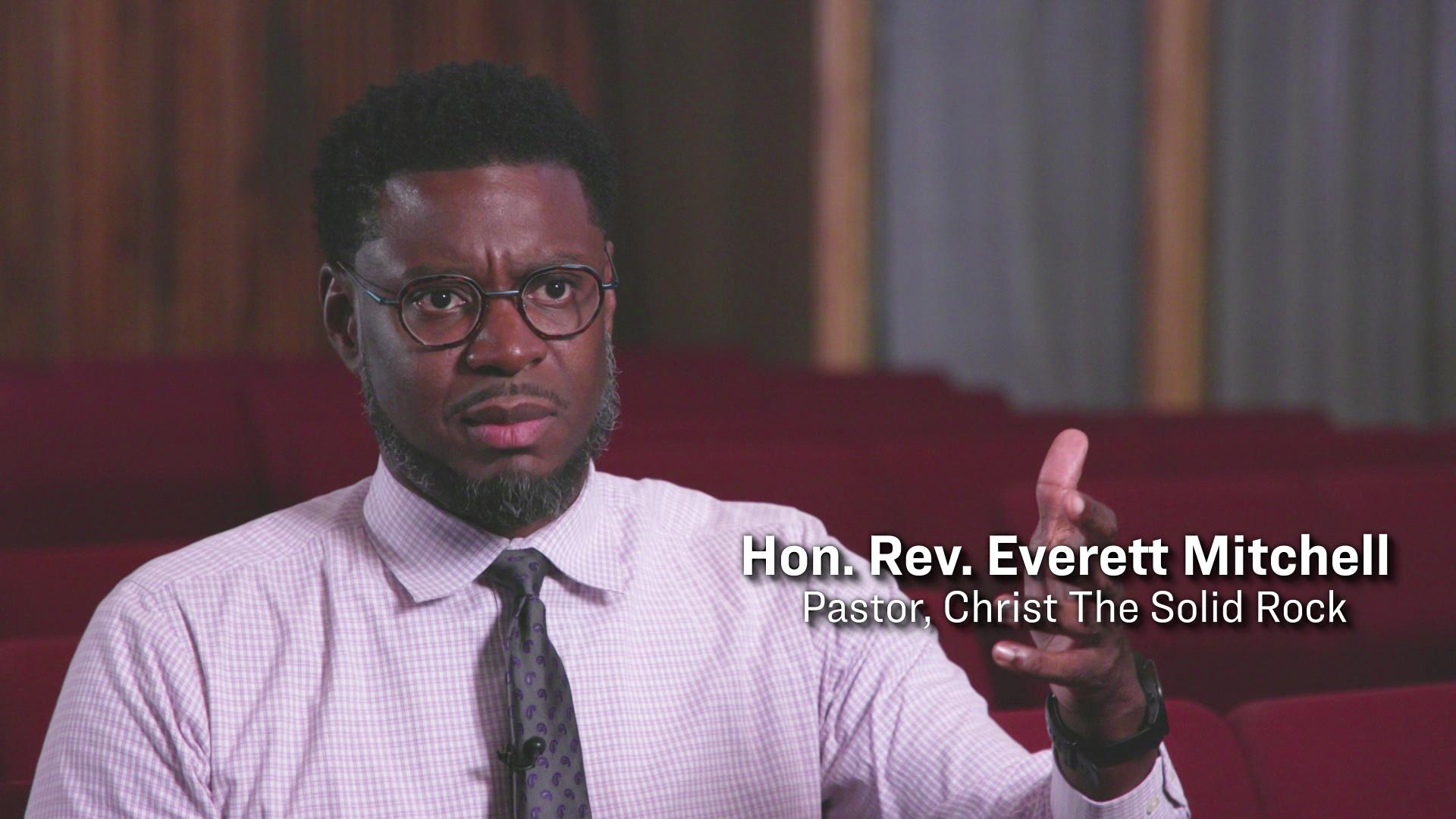
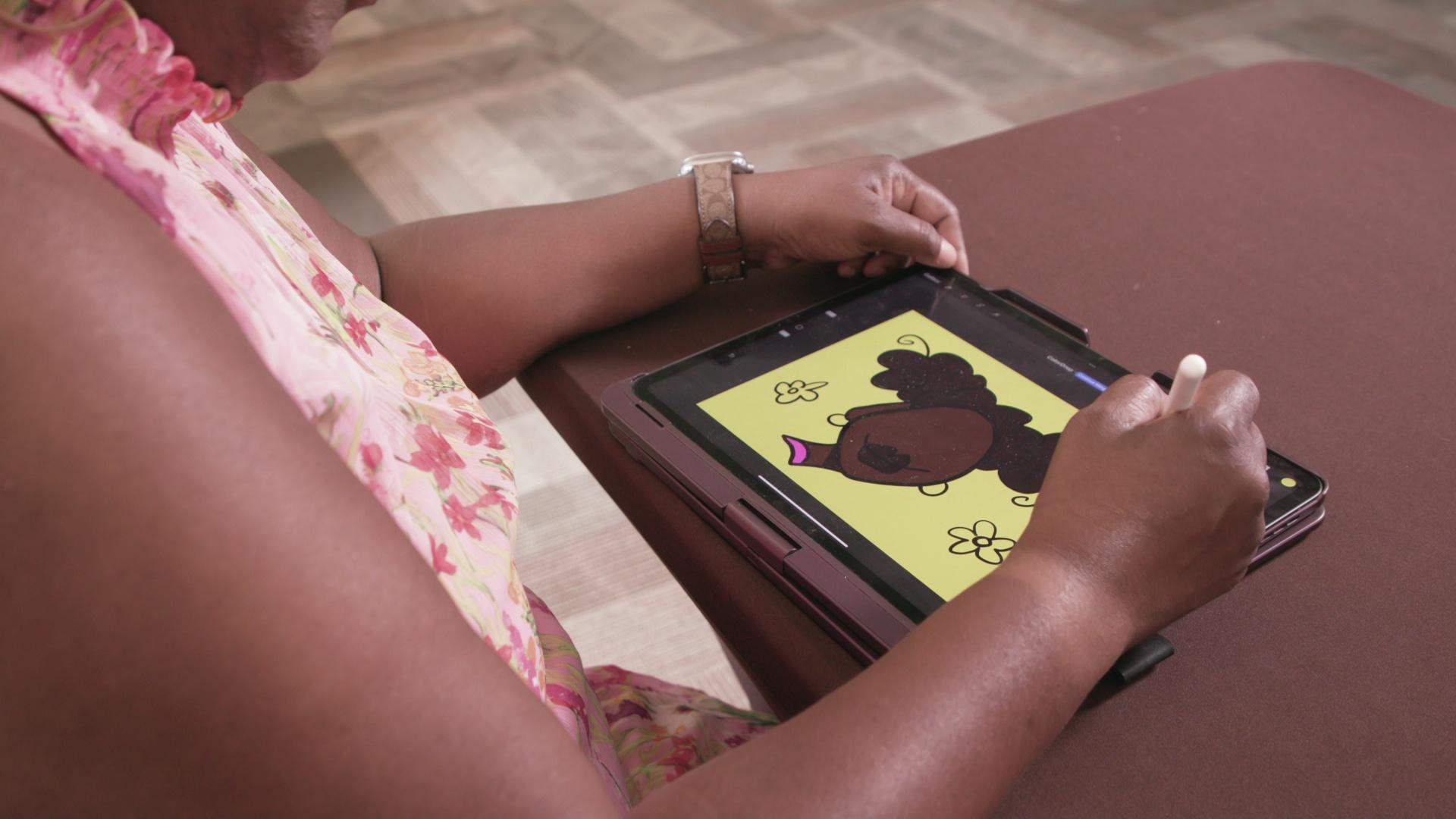
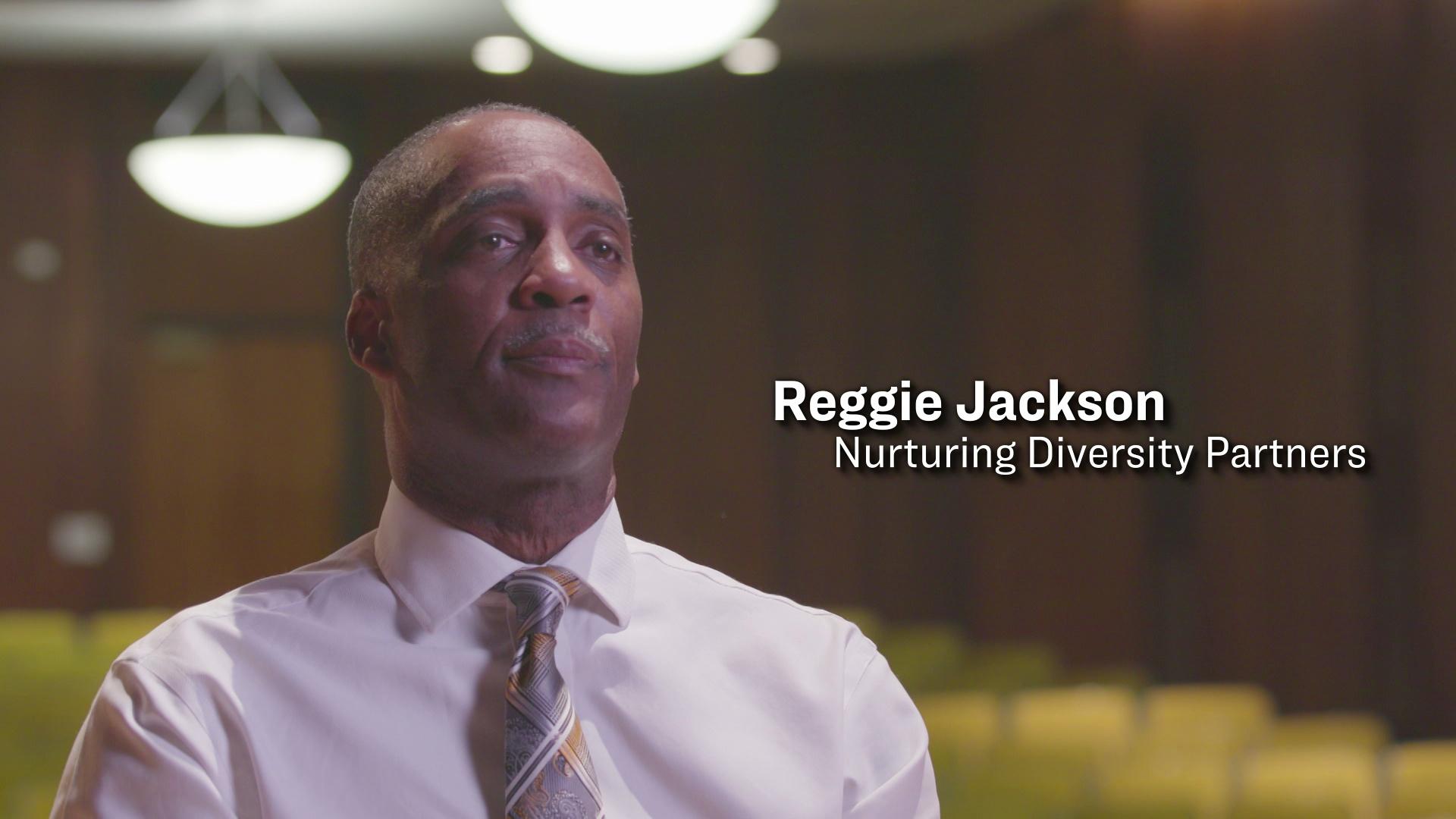
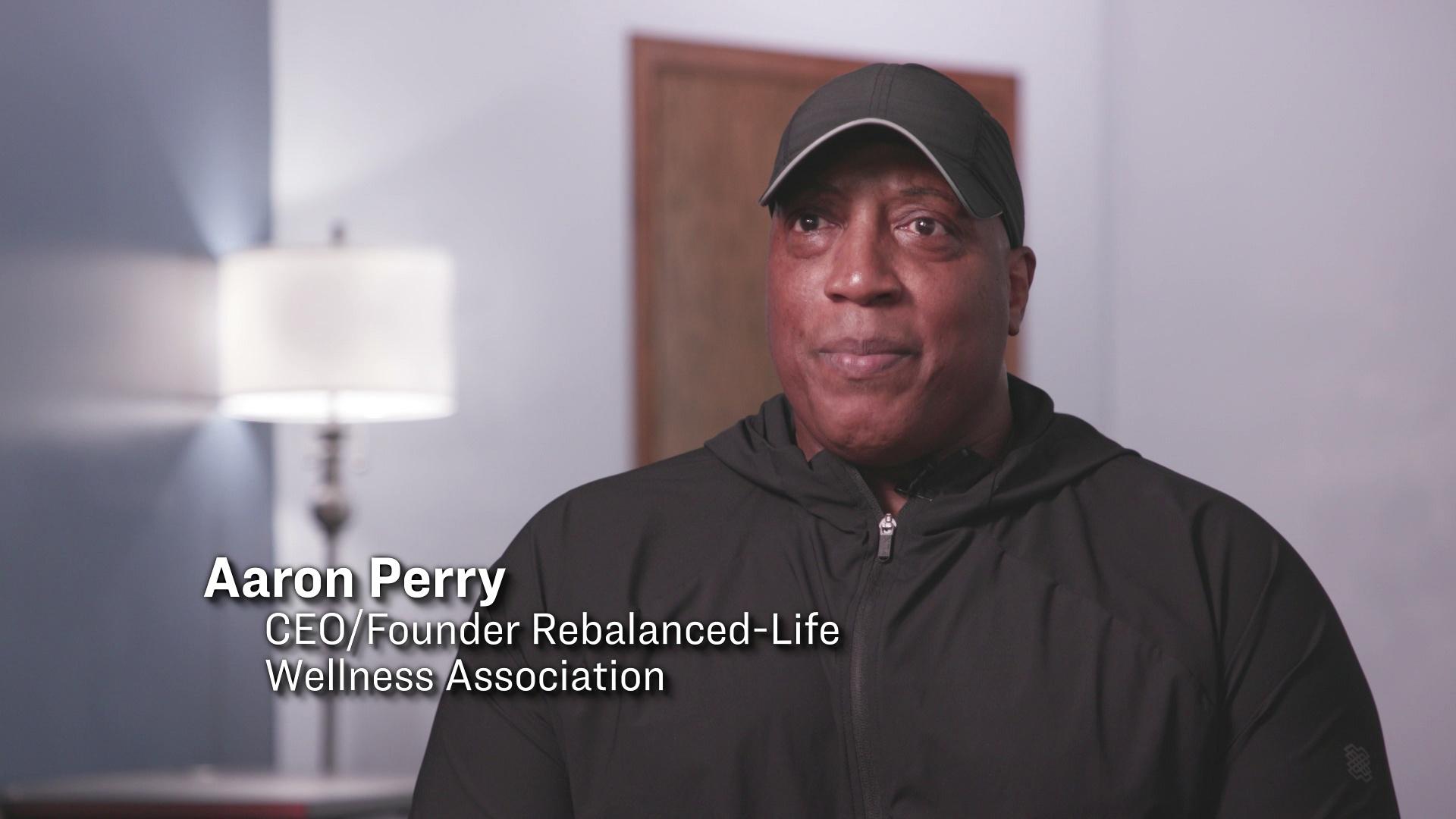
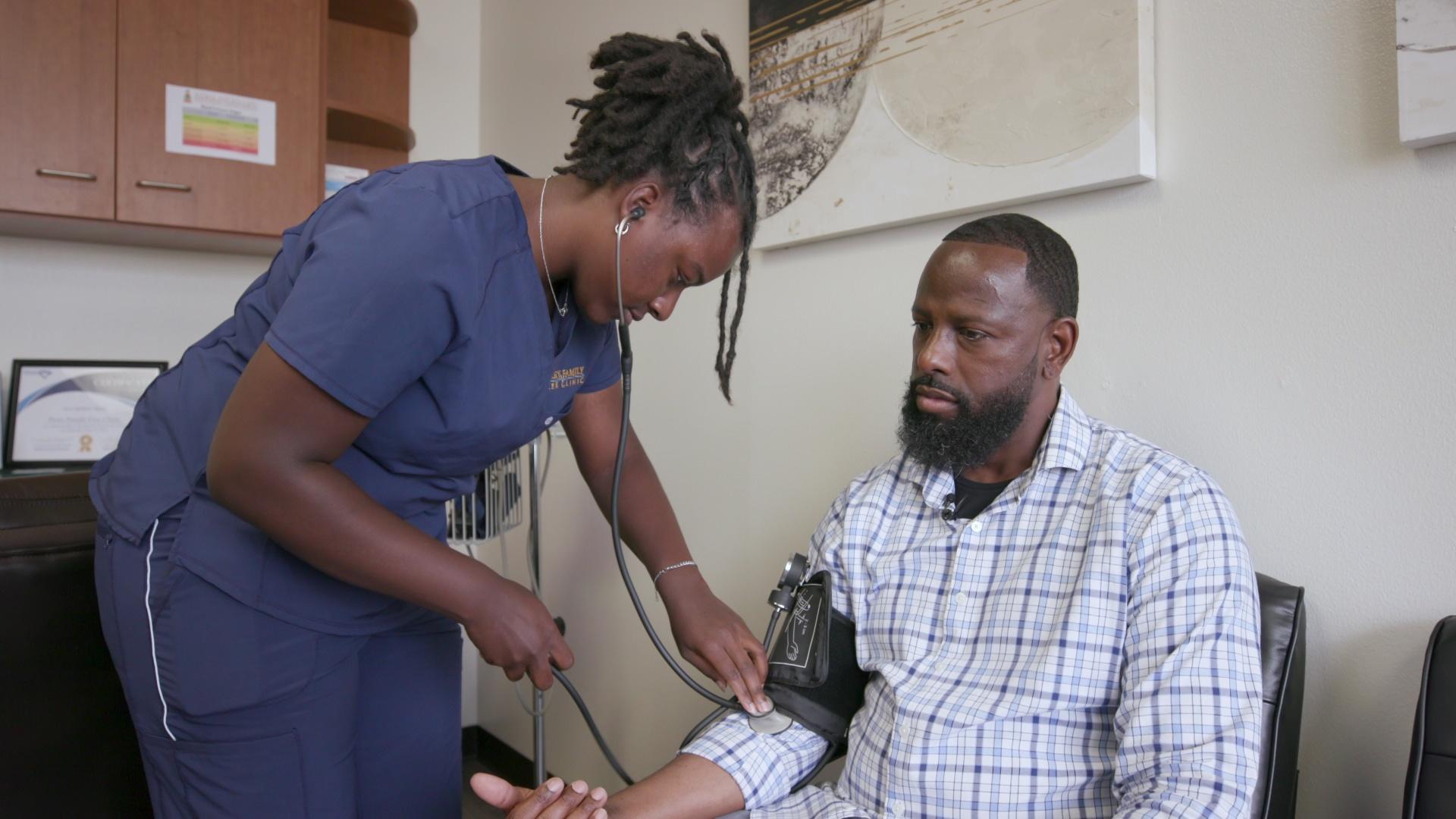

Follow Us